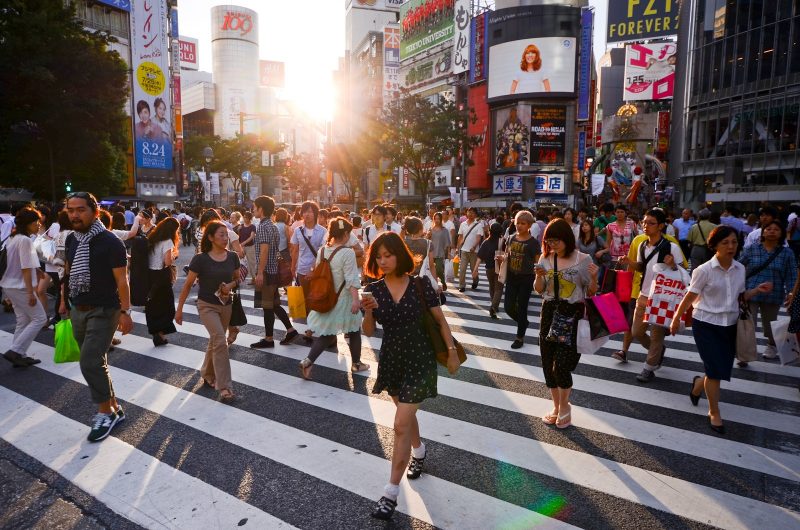Green economy, care economy - what matters is getting beyond GDP
The parallels between green economy and care economy approaches are strong, but their primary aim is moving away from our obsession with GDP

Since I came back from the UN Summit of the Future in New York a couple of weeks ago, I’ve been reflecting on the emphasis that the Pact for the Future placed on the responsibility that those of us alive and working today have to future generations. It’s a crucial framing that unlocks a powerful truth recognised almost universally around the world: that adults owe a duty of care to our children, grandchildren, and our future descendants.
This idea of our duty of care can be expanded outwards to encompass an approach to economic thinking and planning that places caregiving – not only to children but also to other dependents like the elderly and those less able to care for themselves – at its centre. And the more I think about this “care economy”, the more I see it as being deeply interconnected with the green and fair economy that the GEC is campaigning for.
Both focus on sustainability, human well-being, and equity, standing in stark contrast to our current economic system driven solely by the pursuit of GDP growth. But the parallels don’t stop there.
Green & care economies
First of all, let’s define the “care economy”. What would that look like? Simply put, a care economy would put human well-being as the primary metric of economic development. It would recognize and reward the value of caregiving — both paid and unpaid — that makes society possible. Nurses, teachers, and careworkers all perform utterly essential roles in our societies, without which our economies would grind to a halt.
But the benefit of their work remains largely invisible to economic planners, because primarily it has a social rather than a financial impact. This carework is undervalued and underpaid, relative to its social utility. And this underpaid, undervalued yet socially indispensable work continues to be largely staffed by women – hardly a coincidence.
“ What unites the green and care economies is their shared emphasis on sustainability, equity, and well-being. These approaches promote a holistic understanding of prosperity that includes environmental health, social equity, and quality of life.”
A care economy would seek to redress this balance, by measuring, prioritizing and protecting the social function of care, and de-emphasising those sectors which have questionable social utility, such as high finance.
This is where the parallels with green economic thinking really come in. Traditionally understood, the green economy seeks to decouple economic growth from environmental degradation, by prioritising the health of ecosystems that social wellbeing and economic flourishing depend upon.
However, the green economy is more than just environmental sustainability. It is also about inclusive growth, where the benefits of sustainability are shared equitably. This means creating green jobs that support livelihoods and empower communities, particularly those most vulnerable to climate change. A transition to a green economy seeks to address not just ecological crises but also social and economic inequalities.
Sustainability, equity, and well-being
What unites the green and care economies is their shared emphasis on sustainability, equity, and well-being. Both reject the narrow Western definition of value and economic success as perpetual GDP growth and profit, which ignores environmental destruction and social inequalities. Instead, these economies promote a holistic understanding of prosperity that includes environmental health, social equity, and quality of life.

By valuing ecosystems and care work, we shift the focus from extractive practices to regenerative ones. We recognise that the economy is embedded in a larger social and ecological system. This shift is crucial if we are to tackle climate change and inequality that are features of our current economic model.
The GDP trap is holding us back
Despite the growing recognition of the green and care economies, GDP remains the dominant measure of economic performance. While GDP measures the total output of goods and services in a country, it tells us little about whether that output improves human well-being or protects the environment.
GDP is equally ignorant of both unpaid care work, which is critical to the functioning of society, and ecosystem health, which is essential to the continued habitability of our shared planet. Perversely, GDP metrics are boosted by socially undesirable activity. As Robert Kennedy put it in 1968,
“GDP counts air pollution and cigarette advertising, and ambulances to clear our highways of carnage. It counts special locks for our doors and the jails for the people who break them... It counts napalm and nuclear warheads and armored cars for the police to fight the riots in our cities.
Yet GDP does not allow for the health of our children, the quality of their education or the joy of their play. It does not include the beauty of our poetry or the strength of our marriages, the intelligence of our public debate or the integrity of our public officials. In short, it measures everything except that which makes life worthwhile.”
It is often said that “what gets measured gets managed”. It was clear in 1968, and it is clearer than ever today, that we need a new measure beyond GDP. The Pact for the Future acknowledges this and will establish an expert independent high-level commission to explore country owned alternative sustainable development indicators. This is a real opportunity for change in the financial and economic system.
“ To realise this vision, we must break free from the limitations of GDP as a singular measure of success. By adopting more comprehensive metrics, investing in care work, and promoting sustainable practices, we can build an economy that truly serves both people and the planet.”
It is often said that “what gets measured gets managed”. It was clear in 1968, and it is clearer than ever today, that we need a new measure beyond GDP. The Pact for the Future acknowledges this and will establish an expert independent high-level commission to explore country owned alternative sustainable development indicators. This is a real opportunity for change in the financial and economic system.
Getting beyond GDP: five recommendations
As the interim convenor of the Green Economy Coalition, I believe that the future of our economies depends on this shift. The sooner we begin to prioritise human and ecological well-being over GDP growth, the closer we will come to building an economy that works for everyone. To get there, we need five clear priorities:
- Adopt Well-Being Indicators: National and international institutions should incorporate well-being metrics such as the Genuine Progress Indicator (GPI) or the Human Development Index (HDI) to capture a fuller picture of societal progress. These indicators account for environmental sustainability, social equity, and quality of life—elements critical to both green and care economies.
- Invest in the Care Sector: Governments should revalue care work, ensuring that care jobs are fairly compensated and that unpaid care work is recognised and supported. The Pact for the Future recognized the need for greater investment in the care sector but didn’t determine where this should come from.
- Mainstream Circular and Regenerative Economy Practices: Policies should encourage circular economy models that minimize waste and regenerate ecosystems. Our economic institutions and social norms need to prioritise, recognise and support the primacy of care - both for people and for nature.
- Shift to a Planetary Boundaries Framework: Governments and businesses should integrate the concept of planetary boundaries into economic decision-making. By recognising and respecting the limits of natural systems, we can ensure long-term economic and social resilience without sacrificing ecological stability.
- Integrate Care Economy into Green New Deals: Policymakers working on green recovery plans should explicitly incorporate care economy principles. Linking environmental action with social equity, including care work, will make both more robust and equitable.
The alignment of the green and care economies provides a powerful vision for a more just and sustainable future. But to realise this vision, we must break free from the limitations of GDP as a singular measure of success. By adopting more comprehensive metrics, investing in care work, and promoting sustainable practices, we can build an economy that truly serves both people and the planet. It’s time to move beyond GDP and embrace a more holistic understanding of progress—one that aligns with the needs of our time.
- Jean McLean, GEC


